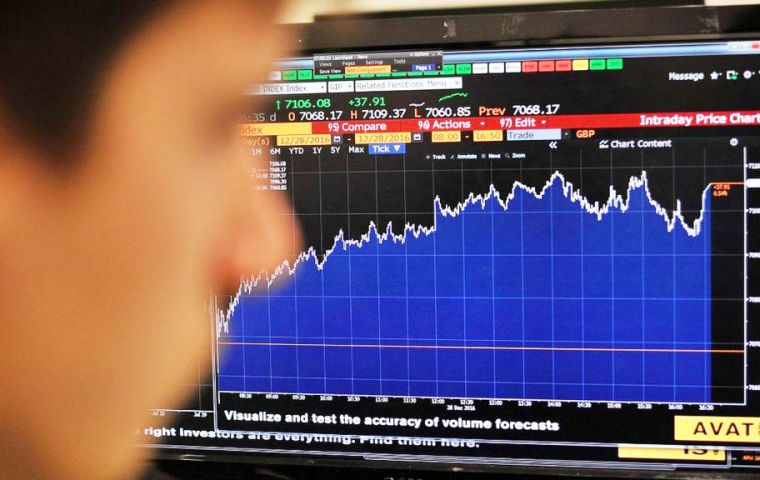MercoPress. South Atlantic News Agency
World's second largest economy has its credit rating downgraded by Moody's
 The Chinese economy expanded by 6.7% in 2016 compared with 6.9% the previous year, the slowest growth since 1990.
The Chinese economy expanded by 6.7% in 2016 compared with 6.9% the previous year, the slowest growth since 1990.  This is the first time that Moody's has cut its investors ratings on Chinese debt in more than 25 years.
This is the first time that Moody's has cut its investors ratings on Chinese debt in more than 25 years. China has received a downgrade on its credit score, on worries about the future state of the economy. Moody's Investors Services brought down China's long-term local currency and foreign currency issuer ratings by one notch to Aa3 from A1, a move that could lead to a rise in the cost of borrowing for the Chinese government and state-owned enterprises. The ratings agency also changed its outlook for China to stable from negative.
Moody's said in a statement that the downgrade reflected expectations China's financial strength will “erode somewhat over the coming years, with the economy-wide debt continuing to rise as potential growth slows”.
The Chinese economy expanded by 6.7% in 2016 compared with 6.9% the previous year, the slowest growth since 1990. This is the first time that Moody's has cut its investors ratings on Chinese debt in more than 25 years.
Currently, China's debt stands at something like 260% to GDP. Higher debt levels usually mean a higher level of risk. But it is worth noting that most of this debt is held by Chinese state-owned enterprises or “quasi-state” like entities - not international investors - so it is less likely to have a spillover effect into other economies.
“The downgrade will certainly affect China negatively,” says Liao Qun from Citic Bank International, based in Hong Kong, who concludes “the direct impact is that this would make China's debt financing more difficult and the financing cost would also raise.”
China is the world's second-biggest importer of both goods and commercial services, meaning its economic performance has a big knock-on impact around the world. It plays an important role as a buyer of oil and other commodities, and its slowdown has been a factor in the decline in the prices of such goods.
Beijing's aim to rebalance the economy towards domestic consumption has led to major challenges for large manufacturing sectors, and there have been layoffs - especially in heavily staffed state-run sectors such as the steel industry.
The downgrade comes as Beijing has been making efforts to clean up its lending practices which have been viewed as a threat to financial stability.




Top Comments
Disclaimer & comment rulesCommenting for this story is now closed.
If you have a Facebook account, become a fan and comment on our Facebook Page!